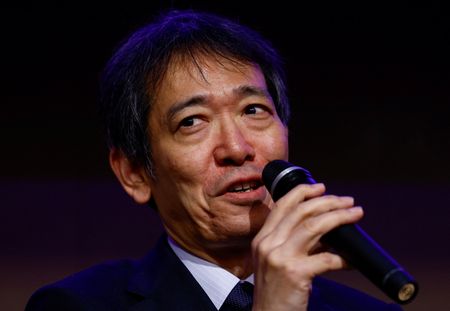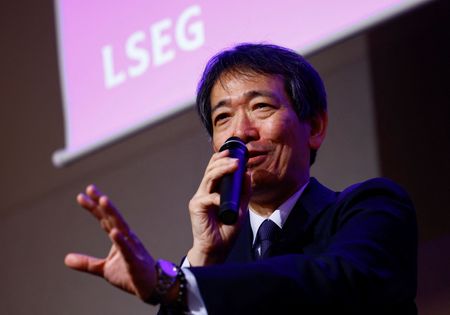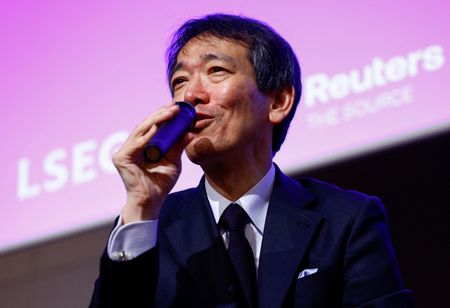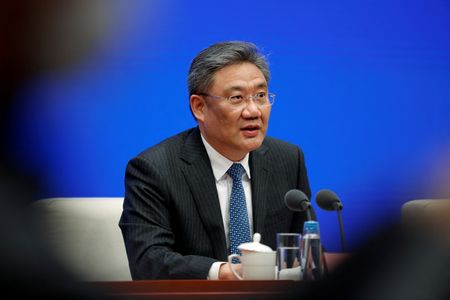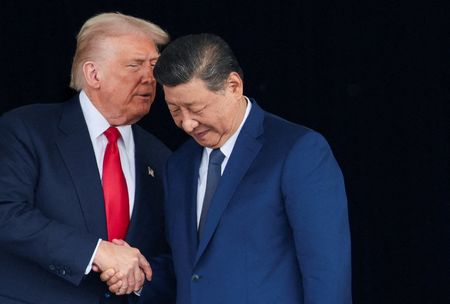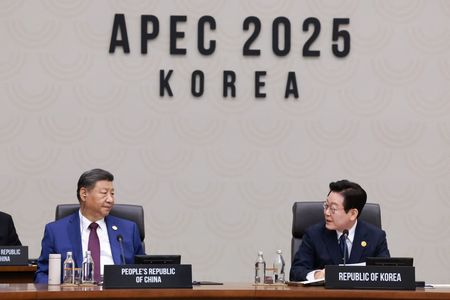By Takaya Yamaguchi, Makiko Yamazaki and Leika Kihara
TOKYO (Reuters) -Japan is closely watching currency market positions, including those built on speculative bets, because volatility in exchange rates is undesirable, its top currency diplomat Atsushi Mimura said on Tuesday.
Uncertainty over new U.S. President Donald Trump’s economic policies could sway markets in unpredictable ways, Mimura said at a Reuters NEXT Newsmaker event, highlighting the difficulty of projecting whether the dollar’s broad uptrend would continue.
Mimura said authorities were focusing more on volatility, rather than yen levels, in guiding foreign-exchange rate policy.
“We’re definitely watching out for speculative positions on a daily basis as excessive volatility or disorderly currency movement are undesirable, as stated in the G7 agreement on exchange rates,” said Mimura, who is vice finance minister for international affairs.
When asked about the Bank of Japan’s policy-setting meeting this week, Mimura said the government and the central bank were communicating closely every day through various channels.
“I have been conveying my views to them. The BOJ is also likely gathering various information including on markets and the annual wage negotiations,” Mimura said.
The BOJ is expected to raise interest rates on Friday barring any market shocks from Trump, sources have told Reuters, a move that would lift short-term borrowing costs to levels unseen since the 2008 global financial crisis.
The dollar pared some overnight losses on Tuesday after Trump suggested the United States could impose tariffs on Canada and Mexico in the near future. Against the yen, the U.S. unit slipped 0.5% to a near five-week low around 154.78.
A weak yen has been a headache for Japanese policymakers because it accelerates inflation by pushing up import costs, weighing on consumption.
Some analysts blame the BOJ’s ultra-low interest rates and the slow pace of rate hikes for contributing to the weaker yen.
Mimura stressed the need to underpin consumption by turning real wages to positive territory.
“The outlook of real wage is very important. From our perspective, a weak yen would work to push up inflation through higher import costs,” he said.
G7 CURRENCY COMMITMENT INTACT
Mimura said he had not heard of any country calling for changing a long-held commitment among G7 advanced economies warning against volatile and disorderly currency moves.
“As a matter of fact, the commitment, which has been reaffirmed by the G7 group at each meeting, was first agreed upon in 2017 during the first Trump administration,” he said.
Mimura was referring to the G7 finance leaders’ agreement of May 2017, which reiterated that “excess volatility and disorderly movements in exchange rates could have adverse implications for economic and financial stability.”
Japan has consistently called on the G7 to re-affirm the commitment, as doing so would give it authority to intervene in the currency market to counter rapid yen moves.
Trump did not immediately impose promised tariffs on Monday but directed federal agencies to “investigate and remedy” persistent U.S. trade deficits and unfair trade practices and currency manipulation by other countries.
Japan’s export-reliant economy is vulnerable to any damage to global trade from higher tariffs. While the International Monetary Fund last week raised its forecast for global growth in 2025, it warned countries against unilateral measures such as tariffs, non-tariff barriers or subsidies that could hurt trading partners and trigger retaliation.
Mimura said it was important to distinguish between protectionist policies that cause fragmentation, and steps many countries implement as industrial policy.
Tariffs are used for several different purposes, such as a bargaining tool to strike deals with other countries, reduce the trade deficit or increase tax revenues, he said.
Japan must scrutinise the motivation for Trump’s expected tariffs, in deciding how best to respond, Mimura said.
“You need to look at the details of the Trump administration’s tariff plans. It’s not an ‘all or nothing’ or ‘this or the other’ decision,” he said.
(Reporting by Takaya Yamaguchi, Makiko Yamazaki and Leika Kihara; Editing by Muralikumar Anantharaman and Kate Mayberry)

